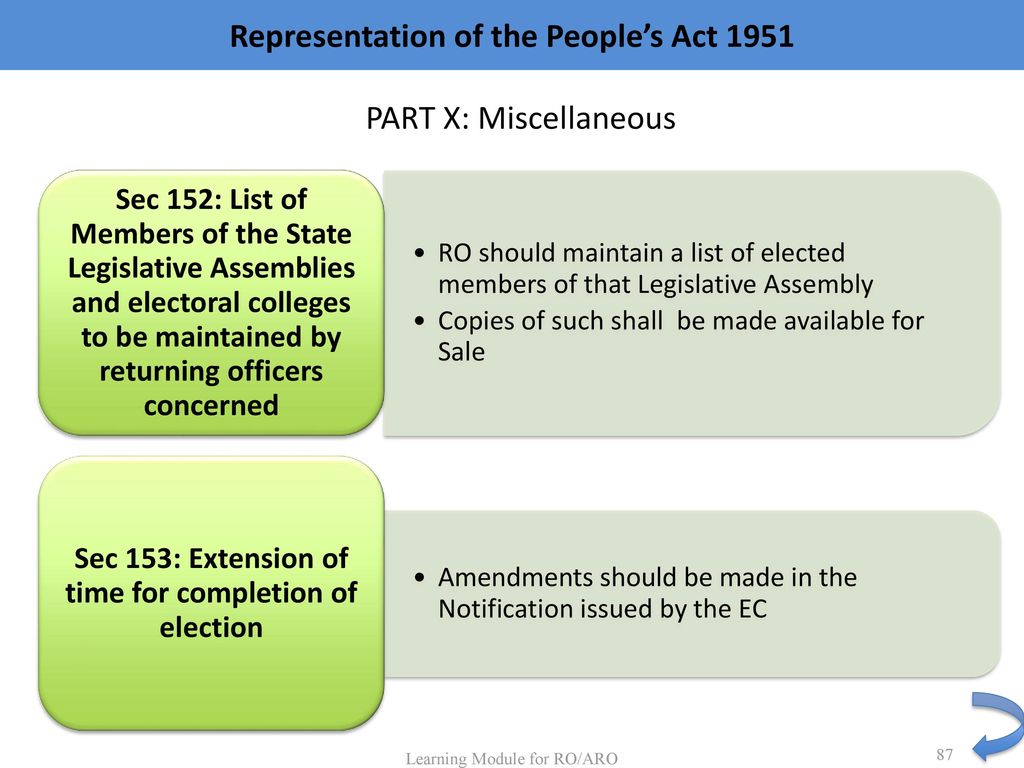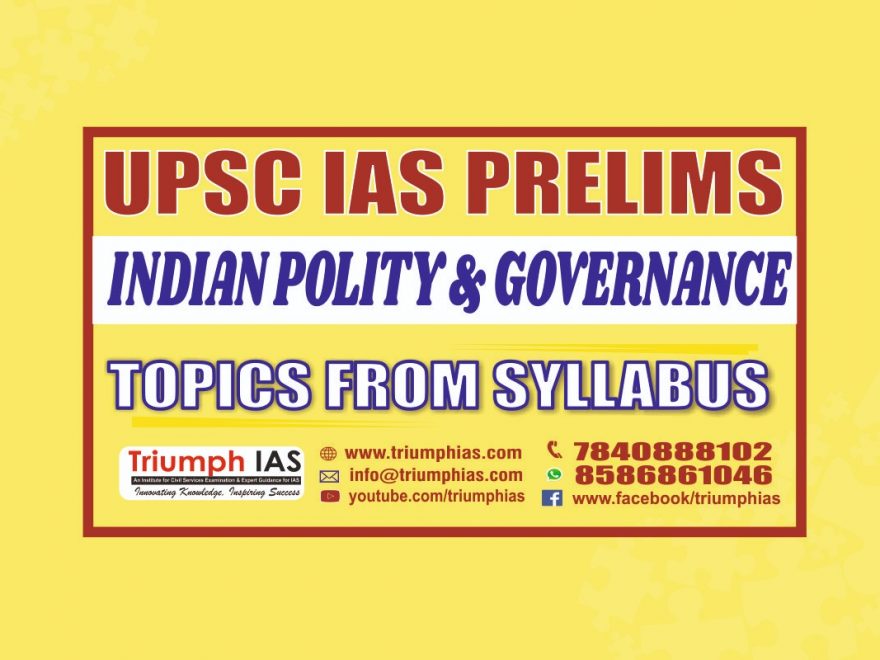Relevance: Prelims/Mains: G.S paper II: Polity: Constitution

About
The Representation of People Act, 1951 was enacted to fill the seats of House or Houses of Parliament and to the Houses of each State, the qualification and disqualification for the participation of those houses. Be that as it may, we as voters have the privilege to know who are we voting in favor of and why as it will help us in discovering the best contestant in the election. The qualification of contesting elections in India gets invalidated if there are any criminal allegations going on or the applicant has been sentenced before for any offense.
Representation of People Act, 1951:
- Article 324 to 329 of Part XV of the Constitution deals with the electoral system in our country.
- Constitution allows Parliament to make provisions in all matters relating to elections to the Parliament and State Legislatures.
- In exercise of this power, the Parliament has enacted laws like the Representation of the People Act 1950 (RPA Act 1950), Representation of the People Act 1951 (RPA Act 1951) and Delimitation Commission Act of 1952.
- RPA Act 1951 deals with the disqualification of people’s representatives.
- ‘Election’ is defined in Section 2 (d) of Representation of People Act, 1951 as “an election to fill a seat or seats in either House of Parliament or in the House or either House of Legislature of a State.”
- ‘Conviction’ is defined as “an outcome of a criminal prosecution which concludes in a judgment that the defendant is guilty of the crime charged.”
On what grounds a people’s representative can be disqualified:
Section 8 deals with the Disqualification of representatives on conviction for certain offenses. This section states that :
- If a person contesting election is charged with any criminal charges or has been convicted for the same earlier loses his right to stand for election according to the statute. Section 8 of the Representation of People Act, 1951 provides various grounds under which a person may be disqualification on conviction for certain offenses.
- Section 8(1) states that a person convicted of an offense punishable under
- Section 153A i.e. offense of promoting enmity between different groups on ground of religion, race, place of birth, residence, language, etc., and doing acts prejudicial to maintenance of harmony or Section 171E i.e. offense of bribery or Section 171F i.e. offense of undue influence or any offense relating to rape given in Section 376 or offense of cruelty towards a woman by husband or any relative of husband or subsection (2) or (3) of Section 505 which states offense of making statement creating or promoting enmity, hatred or ill-will between classes or offense relating to such statement in any place of worship or in any assembly engaged in the performance of religious worship or religious ceremonies; of the Indian Penal Code (45 of 1860).
- Likewise, there are various other offenses which if committed by a candidate will lead him to disqualification. For instance:
- Protection of Civil Rights Act, 1955 which provides for preaching and practice of untouchability.
- Section 11 of the Customs Act, 1962 which states the offense of importing and exporting of prohibited goods.
- Sections 10 to 12 of Unlawful Activities (Prevention) Act, 1967 i.e. offense of being a member of an unlawful association.
- The Narcotics Drugs and Psychotropic Substances Act, 1985
- The Prevention of Corruption Act, 1988
- Shall be disqualified, where the convicted person is sentenced to –
- Only fine, for a period of six years from the date of such conviction;
- Imprisonment, from the date of such conviction and shall continue to be disqualified for a further period of six years since his release.
The remedy available to those disqualified:
- Even if a person is on bail, after the conviction and his appeal is pending for disposal, he is disqualified from contesting an election as per the guidelines issued by the Election Commission of India.
- On 10 July 2013, the Supreme Court of India, in its judgment of the Lily Thomas v. Union of India case, decided that any MP, MLA or MLC who is sentenced for a crime and granted at least two years of imprisonment, loses membership of the House with immediate effect.
- This is opposed to the earlier position, wherein sentenced members clutched their seats until the point that they exhausted all judicial solutions in lower, state and Supreme court of India.
- Further, Section 8(4) of the Representation of the People Act, which permitted elected representatives three months to appeal their conviction, was proclaimed unconstitutional by the seat of Justice A. K. Patnaik and Justice S. J. Mukhopadhaya.
- If an aggrieved person wants to complain about the corrupt practices going on in any phase of the election process then he can make a complaint to the Election Commission of India where there is the office of Chief Election Commissioner.
For more such notes, Articles, News & Views Join our Telegram Channel.
Click the link below to see the details about the UPSC –Civils courses offered by Triumph IAS. https://triumphias.com/pages-all-courses.php

